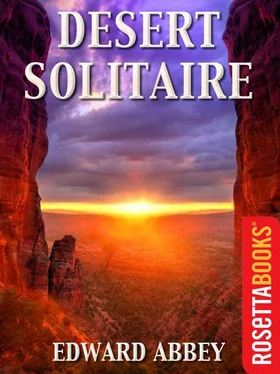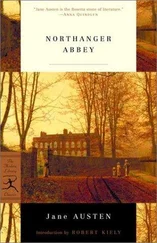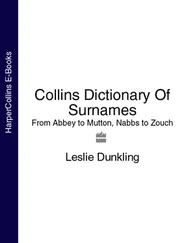Abbey, Edward - Desert Solitaire (Edward Abbey Series )
Здесь есть возможность читать онлайн «Abbey, Edward - Desert Solitaire (Edward Abbey Series )» — ознакомительный отрывок электронной книги совершенно бесплатно, а после прочтения отрывка купить полную версию. В некоторых случаях можно слушать аудио, скачать через торрент в формате fb2 и присутствует краткое содержание. Год выпуска: 2011, Издательство: RosettaBooks, Жанр: Старинная литература, на английском языке. Описание произведения, (предисловие) а так же отзывы посетителей доступны на портале библиотеки ЛибКат.
- Название:Desert Solitaire (Edward Abbey Series )
- Автор:
- Издательство:RosettaBooks
- Жанр:
- Год:2011
- ISBN:нет данных
- Рейтинг книги:4 / 5. Голосов: 1
-
Избранное:Добавить в избранное
- Отзывы:
-
Ваша оценка:
- 80
- 1
- 2
- 3
- 4
- 5
Desert Solitaire (Edward Abbey Series ): краткое содержание, описание и аннотация
Предлагаем к чтению аннотацию, описание, краткое содержание или предисловие (зависит от того, что написал сам автор книги «Desert Solitaire (Edward Abbey Series )»). Если вы не нашли необходимую информацию о книге — напишите в комментариях, мы постараемся отыскать её.
Desert Solitaire (Edward Abbey Series ) — читать онлайн ознакомительный отрывок
Ниже представлен текст книги, разбитый по страницам. Система сохранения места последней прочитанной страницы, позволяет с удобством читать онлайн бесплатно книгу «Desert Solitaire (Edward Abbey Series )», без необходимости каждый раз заново искать на чём Вы остановились. Поставьте закладку, и сможете в любой момент перейти на страницу, на которой закончили чтение.
Интервал:
Закладка:
Much the same could be said of the tamarisk down in the canyon, of the blue-black raven croaking on the cliff, of your own body. The beauty of Delicate Arch explains nothing, for each thing in its way, when true to its own character, is equally beautiful. (There is no beauty in nature, said Baudelaire. A place to throw empty beer cans on Sunday, said Mencken.) If Delicate Arch has any significance it lies, I will venture, in the power of the odd and unexpected to startle the senses and surprise the mind out of their ruts of habit, to compel us into a reawakened awareness of the wonderful—that which is full of wonder.
A weird, lovely, fantastic object out of nature like Delicate Arch has the curious ability to remind us—like rock and sunlight and wind and wilderness—that out there is a different world, older and greater and deeper by far than ours, a world which surrounds and sustains the little world of men as sea and sky surround and sustain a ship. The shock of the real. For a little while we are again able to see, as the child sees, a world of marvels. For a few moments we discover that nothing can be taken for granted, for if this ring of stone is marvelous then all which shaped it is marvelous, and our journey here on earth, able to see and touch and hear in the midst of tangible and mysterious things-in-themselves, is the most strange and daring of all adventures.
After Delicate Arch the others are anticlimactic but I go on to inspect them, as I’m paid to do. From Turnbow Cabin I drive northwesterly on a twisting road above Salt Valley past a labyrinth of fins and pinnacles toward the Devil’s Garden. On the way I pass Skyline Arch, a big hole in the wall where something took place a few years ago which seems to bear out the hypotheses of geology: one November night in 1940 when no one was around to watch, a big chunk of rock fell out of this arch, enlarging the opening by half again its former size. The photographs, “Before & After,” prove it. The event had doubtless been in preparation for hundreds maybe thousands of years—snow falling, melting, trickling into minute fissures, dissolving the cements which knit sandstone particles together, freezing and expanding, wedging apart the tiny cracks, undermining the base—but the cumulative result was a matter, probably, of only a few noisy and dusty minutes in which the mighty slabs cracked and grumbled, shook loose, dropped and slid and smashed upon the older slabs below, shattering the peace of ages. But none were there to see and hear except the local lizards, mice and ground squirrels, and perhaps a pair of outraged, astonished ravens.
I reach the end of the road and walk the deserted trail to Landscape Arch and Double-O Arch, picking up a few candy wrappers left from the weekend, straightening a trail sign which somebody had tried to remove, noting another girdled and bleeding pinyon pine, obliterating from a sandstone wall the pathetic scratchings of some imbeciles who had attempted to write their names across the face of the Mesozoic. (Where are you now, J. Soderlund? Alva T. Sarvis? John De Bris? Bill Hoy? Malcom Brown?)
The wind blows, unrelenting, and flights of little gray birds whirl up and away like handfuls of confetti tossed in the air. The temperature is still falling, presaging snow. I am glad to return, several hours later, to the shelter and warmth of the housetrailer. I have not seen a soul anywhere in Arches National Monument today.
In the evening the wind stops. A low gray ceiling of clouds hangs over the desert from horizon to horizon, silent and still. One small opening remains in the west. The sun peers through as it goes down. For a few minutes the voodoo monuments burn with a golden light, then fade to rose and blue and violet as the sun winks out and drops. My private juniper stands alone, one dead claw reaching at the sky. The blossoms on the cliffrose are folding up, the scarlet penstemon and the bayonets of the yucca turn dull and vague in the twilight.
Something strange in the air. I go to the weather station and check the instruments—nothing much, actually, but a rain gauge, an anemometer or wind gauge, and a set of thermometers which record the lows and highs for the day. The little cups on the wind gauge are barely turning, but this breath of air, such as it is, comes from the southwest. The temperature is fifty-five or so, after a low this morning of thirty-eight. It is not going to snow after all. Balanced on a point of equilibrium, hesitating, the world of the high desert turns toward summer.
POLEMIC : INDUSTRIAL TOURISM AND THE NATIONAL PARKS
I like my job. The pay is generous; I might even say munificent: $1.95 per hour, earned or not, backed solidly by the world’s most powerful Air Force, biggest national debt, and grossest national product. The fringe benefits are priceless: clean air to breathe (after the spring sandstorms); stillness, solitude and space; an unobstructed view every day and every night of sun, sky, stars, clouds, mountains, moon, cliffrock and canyons; a sense of time enough to let thought and feeling range from here to the end of the world and back; the discovery of something intimate—though impossible to name—in the remote.
The work is simple and requires almost no mental effort, a good thing in more ways than one. What little thinking I do is my own and I do it on government time. Insofar as I follow a schedule it goes about like this:
For me the work week begins on Thursday, which I usually spend in patrolling the roads and walking out the trails. On Friday I inspect the campgrounds, haul firewood, and distribute the toilet paper. Saturday and Sunday are my busy days as I deal with the influx of weekend visitors and campers, answering questions, pulling cars out of the sand, lowering children down off the rocks, tracking lost grandfathers and investigating picnics. My Saturday night campfire talks are brief and to the point. “Everything all right?” I say, badge and all, ambling up to what looks like a cheerful group. “Fine,” they’ll say; “how about a drink?” “Why not?” I say.
By Sunday evening most everyone has gone home and the heavy duty is over. Thank God it’s Monday, I say to myself the next morning. Mondays are very nice. I empty the garbage cans, read the discarded newspapers, sweep out the outhouses and disengage the Kleenex from the clutches of cliffrose and cactus. In the afternoon I watch the clouds drift past the bald peak of Mount Tukuhnikivats. ( Someone has to do it.)
Tuesday and Wednesday I rest. Those are my days off and I usually set aside Wednesday evening for a trip to Moab, replenishing my supplies and establishing a little human contact more vital than that possible with the tourists I meet on the job. After a week in the desert, Moab (pop. 5500, during the great uranium boom), seems like a dazzling metropolis, a throbbing dynamo of commerce and pleasure. I walk the single main street as dazed by the noise and neon as a country boy on his first visit to Times Square. (Wow, I’m thinking, this is great.)
After a visit to Miller’s Supermarket, where I stock up on pinto beans and other necessities, I am free to visit the beer joints. All of them are busy, crowded with prospectors, miners, geologists, cowboys, truckdrivers and sheepherders, and the talk is loud, vigorous, blue with blasphemy. Although differences of opinion have been known to occur, open violence is rare, for these men treat one another with courtesy and respect. The general atmosphere is free and friendly, quite unlike the sad, sour gloom of most bars I have known, where nervous men in tight collars brood over their drinks between out-of-tune TV screens and a remorseless clock. Why the difference?
I have considered the question and come up with the following solution:
1. These prospectors, miners, etc. have most of them been physically active all day out-of-doors at a mile or more above sea level; they are comfortably tired and relaxed.
Читать дальшеИнтервал:
Закладка:
Похожие книги на «Desert Solitaire (Edward Abbey Series )»
Представляем Вашему вниманию похожие книги на «Desert Solitaire (Edward Abbey Series )» списком для выбора. Мы отобрали схожую по названию и смыслу литературу в надежде предоставить читателям больше вариантов отыскать новые, интересные, ещё непрочитанные произведения.
Обсуждение, отзывы о книге «Desert Solitaire (Edward Abbey Series )» и просто собственные мнения читателей. Оставьте ваши комментарии, напишите, что Вы думаете о произведении, его смысле или главных героях. Укажите что конкретно понравилось, а что нет, и почему Вы так считаете.












